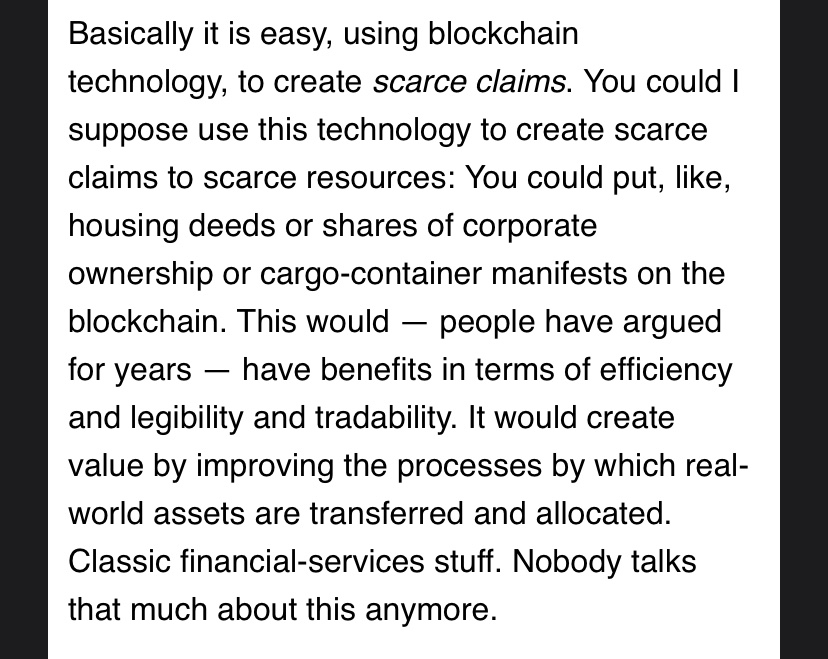
Prosperity doesn’t decrease scarcity claims. Arguably, it increases them. What we are supposed to make of these claims is another story. But I would posit a correlation between the proliferation of crypto tokens and anxiety.
H/t @matt_levine
H/t @matt_levine

This is all to say I’m launching a coin called $FOMO. There’s only one. But every time you buy it it divides into ten.
Basically, Lessing’s Nathan the Wise was about Judaism, Christianity, and Islam as fractional shares of an NFT, only two were forgeries. Problem is we’ll never know which ones are just JPEGs.
On the other hand, the Midrash says Torah was given in the desert so none could claim ownership of it. The flip side of being available to all is being ownerless, infinitely scarce.
Torah is Black letters on white letters.
Torah is Black letters on white letters.
What are black letters? Ownerships claims.
What are white letters? The desert where property is pointless.
What are white letters? The desert where property is pointless.
• • •
Missing some Tweet in this thread? You can try to
force a refresh



